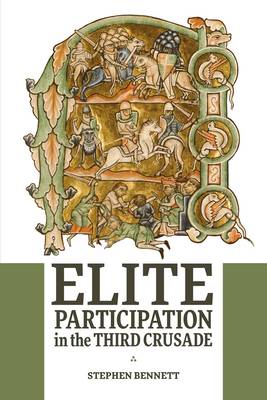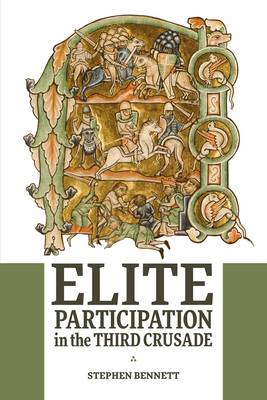
- Afhalen na 1 uur in een winkel met voorraad
- Gratis thuislevering in België vanaf € 30
- Ruim aanbod met 7 miljoen producten
- Afhalen na 1 uur in een winkel met voorraad
- Gratis thuislevering in België vanaf € 30
- Ruim aanbod met 7 miljoen producten
Zoeken
Omschrijving
The motivations behind those who went on the Third Crusade examined through close investigation of their social networks. The Third Crusade (1189-1192) was an attempt by Latin Christendom to reconquer the Holy Land, following the capture of Jerusalem by the Ayyubid sultan Saladin in 1187. Tens of thousands responded to a call for a crusade by Pope Gregory VIII and the efforts of his preachers at mass cross-taking ceremonies, rallying to the expedition's leaders - Frederick Barbarossa, Philip Augustus, and Richard the Lionheart.
This book analyses the communal and cultural factors that influenced nobles from north-western Europe who embarked on the Third Crusade, bringing out the motives, dynamics, and extent of their participation, and placing that participation in the broader social and geographical context of crusading and medieval life. It shows that significant numbers of them were themselves descended from crusaders, and that the majority of them travelled to the Levant in the company of friends, family, and neighbours, as well as through membership of a military household. It also highlights the role of key individuals - both male and female - who influenced the decision to undertake the crusade, and identifies the significant role played by particular religious institutions in the diffusion of crusading ideology.
This book analyses the communal and cultural factors that influenced nobles from north-western Europe who embarked on the Third Crusade, bringing out the motives, dynamics, and extent of their participation, and placing that participation in the broader social and geographical context of crusading and medieval life. It shows that significant numbers of them were themselves descended from crusaders, and that the majority of them travelled to the Levant in the company of friends, family, and neighbours, as well as through membership of a military household. It also highlights the role of key individuals - both male and female - who influenced the decision to undertake the crusade, and identifies the significant role played by particular religious institutions in the diffusion of crusading ideology.
Specificaties
Betrokkenen
- Auteur(s):
- Uitgeverij:
Inhoud
- Aantal bladzijden:
- 506
- Taal:
- Engels
- Reeks:
- Reeksnummer:
- nr. 50
Eigenschappen
- Productcode (EAN):
- 9781783275786
- Verschijningsdatum:
- 16/04/2021
- Uitvoering:
- Hardcover
- Formaat:
- Genaaid
- Afmetingen:
- 156 mm x 234 mm
- Gewicht:
- 820 g

Alleen bij Standaard Boekhandel
+ 515 punten op je klantenkaart van Standaard Boekhandel
Beoordelingen
We publiceren alleen reviews die voldoen aan de voorwaarden voor reviews. Bekijk onze voorwaarden voor reviews.








